Digital Media Summer Institute 2017
Interdisciplinary research,
education and capacity building
11 Apr 2017
Short courses with UT Austin Faculty in Lisbon and Porto.
WHAT’S IT ALL ABOUT?
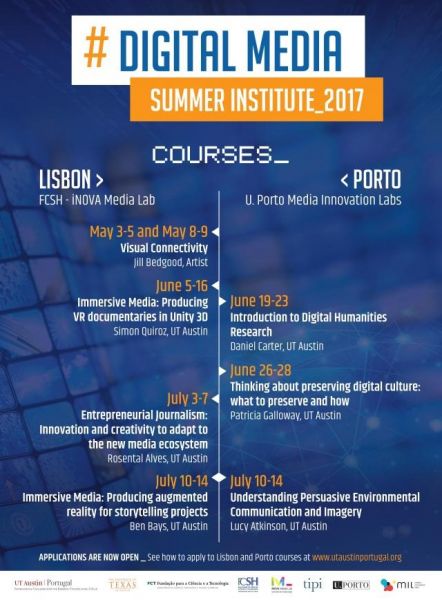 The Digital Media Summer Institute is back for another amazing summer!
The Digital Media Summer Institute is back for another amazing summer!
The Digital Media Summer Institute it’s a hands-on, minds-on learning experience unlike any other!
This unique annual event, organized by the UT Austin | Portugal Program, allows participants to complete numerous short courses that cover several areas of the Digital Media Program, such as Cinema (fiction and documentary), Design, Music, Journalism, among others.
The Digital Media Summer Institute had its first edition in 2007, in the same year that the UT Austin | Portugal Program begun to increase research and postgraduate studies in emerging technologies, with particular emphasis on Media and Digital Content, Advanced Computing, Mathematics and other Emerging Technologies, as well as the area of science and technology commercialization.
The Digital Media Summer Institute 2017 (eleventh edition) will offer students and professionals, in Lisbon and Porto, the opportunity to explore a variety of digital media topics.
The Summer Institute’s activities will be taught by specially selected UT Faculty and aims to increase our understanding of and abilities to work with digital media technologies. The intensive short courses will take place from May to July and will be taught at the graduate level.
PROGRAM
→ LISBON (FCSH, iNOVA Media Lab)
▪ Visual Connectivity
Objective: Focusing on visual art and its ability to communicate a concept as a catalyst for conversation, the workshop will address fundamental issues of creating art in the public realm
Dates: May 3-5 and May 8-9
Speaker: Jill Bedgood, Artist
▪ Immersive Media: Producing VR documentaries in Unity 3D
Objective: Hands-on skill training and prototype production of immersive short documentaries (360° video) in Unity 3D
Dates: June 5-16
Instructor: Simon Quiroz, UT Austin
▪ Entrepreneurial Journalism: Innovation and creativity to adapt to the new media ecosystem
Objective: Apply the main typologies of media innovation to existing and original projects
Dates: July 3-7
Instructor: Rosental Alves, UT Austin
▪ Immersive Media: Producing augmented reality for storytelling projects
Objective: Hands-on skill training and prototype production of augmented reality
Dates: July 10-14
Instructor: Ben Bays, UT Austin
→ PORTO (U. Porto Media Innovation Labs)
▪ Introduction to Digital Humanities Research
Objective: This five-day course will introduce graduate students to techniques for analysing humanities data, with focus on textual data
Dates: June 19-23
Instructor: Daniel Carter, UT Austin
▪ Thinking about preserving digital culture: what to preserve and how
Objective: The course will focus on the broad range of digital materials to be preserved, drawing on examples from materials that have been preserved archivally in the School of Information at University of Texas at Austin from 2003 to the present
Dates: June 26-28
Instructor: Patricia Galloway, UT Austin
▪ Understanding Persuasive Environmental Communication and Imagery
Objective: This graduate-level course will explore science and environmental communication from a persuasive angle
Dates: July 10-14
Instructor: Lucy Atkinson, UT Austin
HOW TO APPLY?
Who can register?
▪ The Digital Media Summer Institute 2017 is open to students, professionals and companies (eg. News Media Companies, Multimedia Production Houses, among others).
▪ There are no specific academic requirements in order to register for courses.
▪ All the courses will be conducted in English.
When to Register?
▪ Space in the program is limited and early registration is encouraged.
▪ Applications for the Lisbon workshops are open! However, the deadlines for each course registration must be taken in consideration, and early bird offers ends on April 28 (for students) and May 5 (for companies and professionals)!
Visual Connectivity – From April 18 to April 29
Immersive Media: Producing VR documentaries in Unity 3D – From April 17 to May 26
Entrepreneurial Journalism: Innovation and creativity to adapt to the new media ecosystem – From April 17 to May 26
Immersive Media: Producing augmented reality for storytelling projects – From April 17 to May 26
▪ Applications for the Porto workshops are open until June 9, but early bird offer ends on May 19!
Introduction to Digital Humanities – From April 26 to June 9
Thinking about preserving digital culture: what to preserve and how – From April 26 to June 9
Understanding Persuasive Environmental Communication and Imagery – From April 26 to June 9
How to Register?
→ How to Apply to LISBON Courses?
● Visual Connectivity
Registration Deadline: April 29 (Saturday)
Course Fee: Free of Charge
Registration:
- Participation in this course requires an application.
- If you are interested in participating in this course please send an email to las.santos@fct.unl.pt to formalize your application.
- Attached must be sent: CV, Portfolio and a Letter of Motivation.
- In the email subject line should be mentioned the name of the course.
Selection of Participants: Selected applicants will be informed by email until May 1 (Monday).
● Applications for the following workshops are now open:
Registration Deadline: May 26 (Friday)
- Immersive Media: Producing VR documentaries in Unity 3D
- Entrepreneurial Journalism: Innovation and creativity to adapt to the new media ecosystem
- Immersive Media: Producing augmented reality for storytelling projects
If you are interested in participating in the workshops please consult the following webpage for more information about prices and registration: http://inovamedialab.org/training/.
→ How to Apply to PORTO Courses?
● Applications for the following workshops are now open!
Registration Deadline: June 9 (Friday)
- Introduction to Digital Humanities Research
- Thinking about preserving digital culture: what to preserve and how
- Understanding Persuasive Environmental Communication and Imagery
If you are interested in participating in the workshops please consult the following webpage for more information about prices and registration: https://mil.up.pt/utap_summerinstitute/.
COURSES DESCRIPTIONS
FCSH, iNOVA Media Lab, Lisbon
Visual Connectivity
Dates: May 3-5 and May 8-9
Speaker: Jill Bedgood
Exact Schedule: 10:00-13:00
Maximum number of participants: 10
Abstract: Defining the goals of the art, from socio-political to sound or light based and everything in between, selecting the most effective media, identifying the audience, determining scale from grand to intimate personal discoveries, manipulating approved venues or employing subversive less traditional activities, will be discussed within the context of the individual artist. Site specificity’s relevance to content and its community will assist in viewer engagement and awareness of place. As well as a reality check list: expenses, safety, permits, etc., setting realizable goals – can the art be created within the monetary and time constraints in which all artists must work.
Immersive Media: Producing VR documentaries in Unity 3D
Dates: June 5-16
Speaker: Simon Quiroz
Exact Schedule: 10:00 – 13:00
Requirements: Recommended software: NLE Software, Finishing Software, Stitching software. Hardware, depends on equipment available.
Maximum number of participants: 10
Abstract: A two weeks hands-on skill training and prototype production of immersive short documentaries integrated in Unity 3D. Participants will develop and capture original 360° video documentary footage and integrate it within a game engine.
Entrepreneurial Journalism: Innovation and creativity to adapt to the new media ecosystem
Dates: July 3-7
Speaker: Rosental Alves
Exact Schedule: 10:00 – 13:00
Maximum number of participants: 18
Abstract: A one week workshop where participants will be guided and challenged by a leading expert on how to think about the contemporary media ecosystem and apply the main typologies of media innovation to existing and original projects.
Immersive Media: Producing augmented reality for storytelling projects
Dates: July 10-14
Speaker: Ben Bays
Exact Schedule: 10:00 – 13:00
Requirements: Computer classroom
Maximum number of participants: 10
Abstract: A one week hands-on skill training and prototype production of augmented reality storytelling projects. Participants will conceive and develop original fiction and/or non-fiction stories based on augmented reality (AR) techniques. AR has a variety of applications from big data visualization, pedagogical innovation, remote training, advertising and entertainment. Using established and bleeding-edge digital production techniques, we will explore the use of AR to how we tell modern stories with augmented images, objects and spaces. Reality itself is the canvas for CG, VFX and animation.
U. Porto Media Innovation Labs
Introduction to Digital Humanities Research
Dates: June 19-23
Speaker: Daniel Carter
Exact Schedule: 14:00 - 17:00
Requirements: Laptop
Maximum number of participants: 22
Abstract: Topics will include feature extraction, exploratory analysis and data visualization, as well as a basic introduction to machine learning techniques such as topic modelling and support vector machine classifiers. No prior technical knowledge is needed for the course – while students will gain basic programming skills in R, the course’s emphasis will be on developing a conceptual understanding of techniques in order to think about how they might be used in future work. Along with the reading of core digital humanities texts, this technical understanding will be used to ground discussions of questions that are central to digital humanities work such as how aggregate quantitative data can be used to understand situated cultural objects.
Thinking about preserving digital culture: what to preserve and how
Dates: June 26-28
Speaker: Patricia Galloway
Exact Schedule: 09:00 - 12:00 and 14:00 - 16:30
Requirements: Laptop; There will be a short recommended reading list available online in advance of the course
Maximum number of participants: 20
Abstract: It will cover aspects of archival preservation of digital materials, including what is preserved, why it is preserved, and the means of providing access: the theme here is how we can preserve the digital culture we have been making as individuals for the last forty years. The course will discuss technicalities like format identification and the use of metadata as well as the guarantee of authenticity through message digests and electronic records and archival repository construction, use and administration. The use of existing standard practices in the information technology field and how they are being adapted to archival requirements will also be touched on: digital forensics, code versioning, text mining and IT auditing.
Understanding Persuasive Environmental Communication and Imagery
Dates: July 10-14
Speaker: Lucy Atkinson
Exact Schedule: 09:30 - 12:30
Requirements: Laptop
Maximum number of participants: 20
Abstract: The focus is on theories and best practices as they relate to communicating effectively about contemporary complex issues, such as climate change, species loss, access to potable water, etc. The seminar tackles the question of how do we encourage audiences to think about value and act on behalf of the environment. It will examine the following themes: 1) the social construction of the environment and environmental problems; 2) how the environment is communicated in mass media; 3) theories of persuasion and how mass communication can change attitudes related to the environment; and 4) theories of behaviour change and how persuasive communication can facilitate environmentally friendly behaviours. A common touchpoint running through each theme will be the role of visuals. Special attention will be paid to theories of information processing and visual depictions of the environment and environmental issues, for example in advertising, infographics and data visualization images.
MEET THE INSTRUCTORS
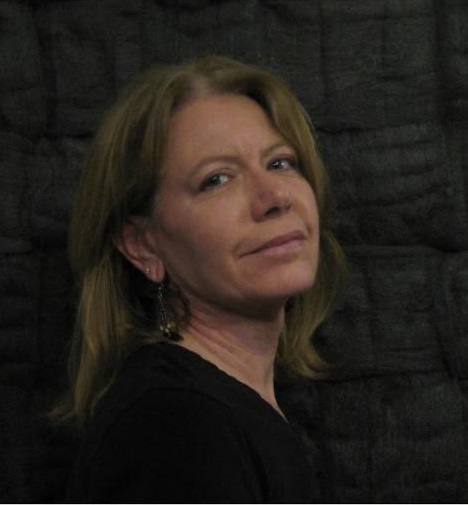 Jill Bedgood creates multi-media art that reflects her questioning of the duality of human nature. She has BFA in painting & art history from Louisiana State University in Baton Rouge, and MFA from the University of Texas at Austin, mixed media sculpture & art history. Grants include Visiting Artist Residencies at the American Academy in Rome and a Residency at the Rockefeller Foundation’s Conference Center in Bellagio, Italy. Other grants include New Forms Regional Initiatives Grant, funded by the Rockefeller and Andy Warhol Foundation and NEA; a Mid-America Arts Association/National Endowment for the Arts Award in Sculpture, and an Art Matters Inc. Grant. She has been a fellow at the MacDowell Colony and the Virginia Center for the Creative Arts.
Jill Bedgood creates multi-media art that reflects her questioning of the duality of human nature. She has BFA in painting & art history from Louisiana State University in Baton Rouge, and MFA from the University of Texas at Austin, mixed media sculpture & art history. Grants include Visiting Artist Residencies at the American Academy in Rome and a Residency at the Rockefeller Foundation’s Conference Center in Bellagio, Italy. Other grants include New Forms Regional Initiatives Grant, funded by the Rockefeller and Andy Warhol Foundation and NEA; a Mid-America Arts Association/National Endowment for the Arts Award in Sculpture, and an Art Matters Inc. Grant. She has been a fellow at the MacDowell Colony and the Virginia Center for the Creative Arts.
Recent solo exhibitions include Soliloquy at Box 13, Houston, Texas, and Book of Hours: Intervention at Blue Star Contemporary in San Antonio, Hanover College in Indiana, and Utah Museum of Contemporary Art. Landmines & Poppies was part of the exhibition Texas Sequels at the National Painting School in Athens, Greece, which traveled to Mimar Sinan Fine Arts University, Istanbul, Turkey. Her love book was added to Let’s talk about love, baby: Love Book Project at the Indianapolis Museum of Contemporary Art in the spring 2012. She has exhibited work at the Holocaust Museum Houston, Houston Center for Contemporary Crafts, Austin Museum of Art, San Antonio Museum of Art, Women & Their Work Gallery, Lawndale Art Center, Blue Star Contemporary, as well as alternative spaces in the U.S. Reviews include the New York Times, The New Art Examiner, High Performance, Sculpture, Art Lies, CNN on line, NPR.
Bedgood has a history of involvement with art in the public realm, with work included in The Art of Placemaking. She engaged the public with “Contagion: Measles, Influenza, Smallpox,” soap cast in the form of communicable diseases, which was distributed in rest rooms at the University of Texas El Paso as part of the Visiting Artist Program. Her work for the City of Austin includes: “San Jacinto & Second Street: Currency,” “Community Screen: Charms” at the Northwest Recreation Center, “Texas-Mythology-Reality” at Austin Bergstrom International Airport, “Botanical Paintings” Austin Convention Center, “Community Quilt Mosaics” with Steve Wiman at the South Austin Senior Activity Center, “Zilker Park Playscape Designs.” Bedgood has served as Chair of and Panelist for the Art in Public Places Program for the City of Austin. She is currently working on three projects for the City of Fort Worth.
As an educator, Bedgood has been adjunct faculty or visiting artist at the University of Texas at Austin, University of Tennessee at Knoxville, Trinity University, Texas State University in San Marcos, Southwestern University and at Austin Community College. She lives and works in San Antonio, Texas.
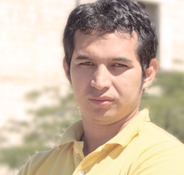 Simon Quiroz is a Production & Post-Production Specialist.
Simon Quiroz is a Production & Post-Production Specialist.
In 2013, he was nominated for the Kodak scholarship award. Simon's films have screened domestically and internationally, earning various awards and honorary mentions.
Currently, Simon is developing three feature-length screenplays and an episodic new media show. Simon’s work deals with folk tale myths that transgress the barriers of time while shaping characters that face current socio-political scenarios. He is also fascinated in the ways in which technology challenges conventions in storytelling, defines forms of production, and ultimately delivers to different audiences. Simon received his MFA from RTF at the University of Texas Austin, and also holds BA degrees in Visual Arts and Theatre from the University of California, San Diego.
.jpg) Rosental Alves began his academic career in the United States in March 1996, after 27 years as a professional journalist, including seven years as a journalism professor in Brazil. He moved to Austin from Rio de Janeiro, where he was the managing editor and member of the board of directors of Jornal do Brasil, one of the most important Brazilian newspapers. Alves worked for that paper for 23 years.
Rosental Alves began his academic career in the United States in March 1996, after 27 years as a professional journalist, including seven years as a journalism professor in Brazil. He moved to Austin from Rio de Janeiro, where he was the managing editor and member of the board of directors of Jornal do Brasil, one of the most important Brazilian newspapers. Alves worked for that paper for 23 years.
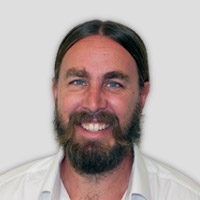 Ben Bays is an Austin, Texas, native and UT graduate who has produced a broad range of animation, motion graphics, concept art, CG models for a variety of media including television, feature films and video games. Since 1998, he has been producing interactive content for a various platforms including Gamecube, PS2, XBOX, GBA, GameboyDS, SO, IOS, and PC. His game art includes isometric pre-painted backgrounds, full 3D environments, 2.5D platformers, tile based destructible environments. His specialty in interactive media has always been virtual worlds; concept to modeling, surfacing, lighting, simulations and animation. Over more than a decade in the video game industry, he worked his way from level 1 artist to environment lead to art lead on a variety of projects. In 2008, he joined the facuty of the RTF department in The Moody College of Communications. He has created and taught a variety of classes around storytelling in "new media", a fluid term. In addition to classes in traditional animation, visual effects, CG modeling and animation, he has been involved in the Immersive Media production classes, including several initiatives involving VR and AR. In short, Ben is a New and Digital Media production specialist.
Ben Bays is an Austin, Texas, native and UT graduate who has produced a broad range of animation, motion graphics, concept art, CG models for a variety of media including television, feature films and video games. Since 1998, he has been producing interactive content for a various platforms including Gamecube, PS2, XBOX, GBA, GameboyDS, SO, IOS, and PC. His game art includes isometric pre-painted backgrounds, full 3D environments, 2.5D platformers, tile based destructible environments. His specialty in interactive media has always been virtual worlds; concept to modeling, surfacing, lighting, simulations and animation. Over more than a decade in the video game industry, he worked his way from level 1 artist to environment lead to art lead on a variety of projects. In 2008, he joined the facuty of the RTF department in The Moody College of Communications. He has created and taught a variety of classes around storytelling in "new media", a fluid term. In addition to classes in traditional animation, visual effects, CG modeling and animation, he has been involved in the Immersive Media production classes, including several initiatives involving VR and AR. In short, Ben is a New and Digital Media production specialist.
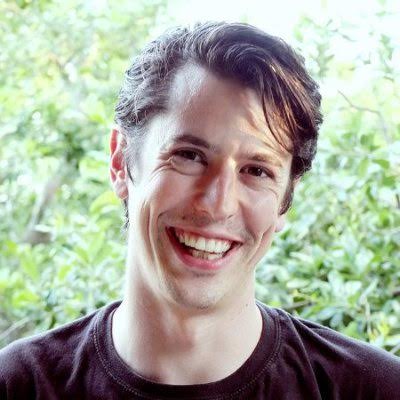 Daniel Carter is a PhD candidate in the School of Information at the University of Texas at Austin and will start as a Professor of Digital Media at Texas State University in 2017. His research centers on how new analytic processes such as machine learning impact the knowledge production and work practices of various groups, including digital humanities scholars. He’s also interested in questions around infrastructure, labor and design. In addition to ethnographic methods, he often works with computational methods from natural language processing and social network analysis.
Daniel Carter is a PhD candidate in the School of Information at the University of Texas at Austin and will start as a Professor of Digital Media at Texas State University in 2017. His research centers on how new analytic processes such as machine learning impact the knowledge production and work practices of various groups, including digital humanities scholars. He’s also interested in questions around infrastructure, labor and design. In addition to ethnographic methods, he often works with computational methods from natural language processing and social network analysis.
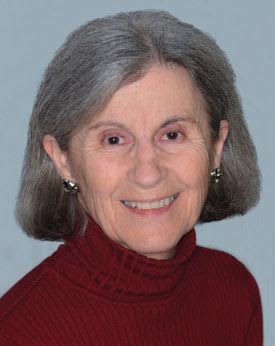 Patricia Galloway joined the University of Texas at Austin School of Information’s archival program, where she is now Professor, in 2000. She teaches courses in digital archives, archival appraisal and historical museums. From 1979 to 2000 she worked at the Mississippi Department of Archives and History, where she was an editor, historian, museum exhibit developer and manager of archival information systems and from 1997 to 2000 directed an NHPRC-funded project to create an electronic records program for the state of Mississippi. Her academic qualifications include a BA in French from Millsaps College (1966); MA (1968) and PhD (1973) in Comparative Literature and PhD in Anthropology (2004), all from the University of North Carolina at Chapel Hill. She was an archaeologist in England, Norway and Germany in the 1970s and supported digital humanities in the University of London 1977-79. She served on the Society of American Archivists Continuing Education ad Professional Development committee 2005-2009, when the groundwork was prepared for SAA’s current Digital Archives Specialist certificate program. Her recent publications include an article on “Digital Archiving” in the Encyclopedia of Library and Information Science (2009), articles on “Intrinsic Value” and “Principle of Respect for Original Order” in the new Encyclopedia of Archival Science and articles in American Archivist, Archivaria, D-Lib, Library Trends, Information and Culture, and IEEE Annals of the History of Computing.
Patricia Galloway joined the University of Texas at Austin School of Information’s archival program, where she is now Professor, in 2000. She teaches courses in digital archives, archival appraisal and historical museums. From 1979 to 2000 she worked at the Mississippi Department of Archives and History, where she was an editor, historian, museum exhibit developer and manager of archival information systems and from 1997 to 2000 directed an NHPRC-funded project to create an electronic records program for the state of Mississippi. Her academic qualifications include a BA in French from Millsaps College (1966); MA (1968) and PhD (1973) in Comparative Literature and PhD in Anthropology (2004), all from the University of North Carolina at Chapel Hill. She was an archaeologist in England, Norway and Germany in the 1970s and supported digital humanities in the University of London 1977-79. She served on the Society of American Archivists Continuing Education ad Professional Development committee 2005-2009, when the groundwork was prepared for SAA’s current Digital Archives Specialist certificate program. Her recent publications include an article on “Digital Archiving” in the Encyclopedia of Library and Information Science (2009), articles on “Intrinsic Value” and “Principle of Respect for Original Order” in the new Encyclopedia of Archival Science and articles in American Archivist, Archivaria, D-Lib, Library Trends, Information and Culture, and IEEE Annals of the History of Computing.
.jpg) Lucy Atkinson (PhD, University of Wisconsin – Madison) is an associate professor in the Stan Richards School of Advertising & PR in the Moody College of Communication at the University of Texas at Austin. Her research looks at the connections between mass media, civic engagement and consumer culture, with a focus on environmental and political communication’s role in fostering forms of sustainable citizenship. She focuses on the ways message components (like visual elements, argument frames, source factors) in environmental communication campaigns interact with other message components to influence environmental attitudes, beliefs and behaviors. Atkinson’s work has appeared in top-ranked flagship outlets, like the Journal of Advertising and the International Journal of Communication, and in highly regarded specialty publications, like Environmental Communication and Science Communication. Before pursuing her doctorate, Atkinson worked for several years as a newspaper reporter in New York and as a public relations consultant in Madison, WI.
Lucy Atkinson (PhD, University of Wisconsin – Madison) is an associate professor in the Stan Richards School of Advertising & PR in the Moody College of Communication at the University of Texas at Austin. Her research looks at the connections between mass media, civic engagement and consumer culture, with a focus on environmental and political communication’s role in fostering forms of sustainable citizenship. She focuses on the ways message components (like visual elements, argument frames, source factors) in environmental communication campaigns interact with other message components to influence environmental attitudes, beliefs and behaviors. Atkinson’s work has appeared in top-ranked flagship outlets, like the Journal of Advertising and the International Journal of Communication, and in highly regarded specialty publications, like Environmental Communication and Science Communication. Before pursuing her doctorate, Atkinson worked for several years as a newspaper reporter in New York and as a public relations consultant in Madison, WI.

 News
News
